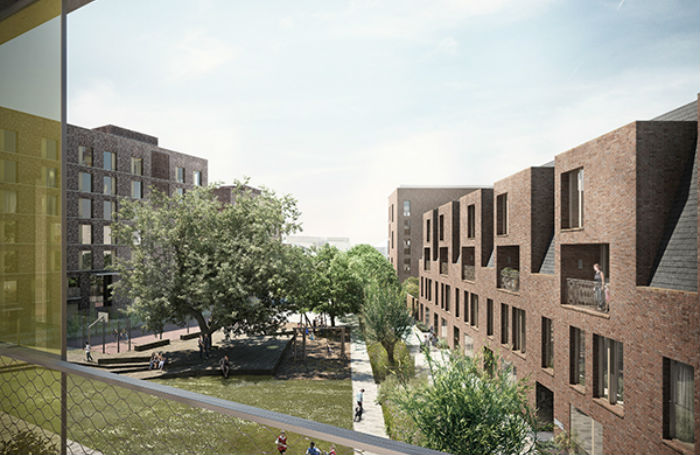While the government’s much anticipated Housing White Paper has been delayed until early 2017, its Estate Regeneration National Strategy was announced in full in early December along with an extra £30 million as an enabling grant for early stage work that can accelerate existing estate renewal proposals.
The government wants to allocate all of the new ‘enabling funding’ by the end of the 2016/17 financial year, so the race is on for local authorities and registered social landlords to get their bids in as soon as possible.
Examples of early stage work that is eligible for grant support include feasibility studies, viability assessments, masterplanning and community engagement, which should get the year off to a good start for architects with a housing renewal focus.
The new money is in addition to £140m of loan funding announced last year for the government’s estate regeneration fund. The Estate Regeneration: prospectus covers the £140m five-year programme and grants for early stage work.

The DCLG’s new Estate Regeneration National Strategy has been drawn up by an independent advisory panel chaired by former Deputy Prime Minister Lord Heseltine and Housing and Planning Minister Gavin Barwell.
The strategy sets out three key principles that run through the document: engaging the community as partners; championing the support and leadership of the local authority; and a willingness to work with the private sector to access commercial skills and leverage investment.
Design quality and place-making are covered in some depth, both in the Strategy’s good practice guide and in an extensive checklist on process design and quality.
Local authorities are encouraged to consider the full range of planning routes available to facilitate projects, including site specific Supplementary Planning Documents, local development orders, neighbourhood plans or development orders and the new ‘permission in principle’, which the strategy says could be used to create a more certain and streamlined planning process for all parties.
Alex Ely, Principal at Mæ Architects, who sat on the advisory panel responsible for the Strategy when deputising for RIBA President Jane Duncan, says the Strategy is open to all possibilities, including the cases for refurbishment or demolition, and so does mark a shift in policy.
‘The Strategy has a very positive focus on working with local authorities and the communities on estates under consideration, and it provides a series of frameworks that can be used, such as residents’ charters that set out what they can expect,’ says Ely.
In the longer term, Ely says architects should watch out for initiatives on wider public investment that encompass community health and wellbeing, which the DCLG is actively monitoring on three estate renewal projects.
Thanks to Alex Ely, Principal at Mæ Architects.
Text by Neal Morris, © RIBA









